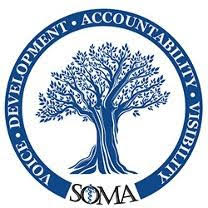› Forums › Spring 2021 Resolution Forum › Resolution: S-21-18: SUPPORTING VOTING CAPABILITIES AMONGST HOSPITALIZED PATIENTS WITH THE CAPACITY TO VOTE
- This topic has 0 replies, 1 voice, and was last updated 3 years, 3 months ago by
Valerie Lile.
-
AuthorPosts
-
-
February 18, 2021 at 12:00 pm #3525
Valerie Lile
KeymasterWHEREAS, previous studies have demonstrated that an individual’s state of health can significantly affect their decision and ability to go to voting polls, with those who suffer from cardiovascular disease, long term disabilities, lack of insurance, and self-report poor health status being more vulnerable to under-representation across local, state, and federal governments; 1 and
WHEREAS, lack of political representation is a significant determinant of health and health outcomes;2and
WHEREAS, hospitalized individuals are especially at risk for underrepresentation, with nearly half of all patients requiring hospitalization for at least four days;3 and
WHEREAS, medical institutions offer the unique opportunity to engage diverse and underrepresented populations in the voting process, with several previous nonpartisan voter registration efforts within these settings have been shown to increase participation in the electoral process, especially among the elderly, adolescents, the medically underserved, and the critically ill;5-7 and
WHEREAS, specifically, physician-led, nonpartisan voter registration initiatives at two different university-affiliated health centers demonstrated notable efficacy, with nearly 90% of previously unregistered patients successfully registering to vote via such efforts;5 and
WHEREAS, encouraging a positive electoral process that benefits hospitalized individuals aligns with the missions of the Student Osteopathic Medical Association (SOMA) and the American Osteopathic Association (AOA) to advance osteopathic medicine, including caring for the mind, body and spirits of those occupying the approximately 924,000 hospital beds in the United States;8 now, therefore, be it
RESOLVED, that SOMA advocate for the adoption of policies, legislation, and practices that support voting capabilities amongst hospitalized patients with the capacity to vote for all local, state, and federal government elections; and be it further,
RESOLVED, that SOMA submit resolutions to the AOA and AMA that encourage their affiliates to support voting capabilities amongst hospitalized patients with the capacity to vote for all local, state, and federal government elections.
Explanatory Statement
This resolution was originally referred back to author as it was directed at COMS and the state-by-state nature of voting regulations. Because of these recommendations, the resolution now focuses on having SOMA, AOA, and AMA advocate to affiliates (which include state societies) to ensure that patients are supported in their voting capabilities. Additional feedback prior was to include hospital employees; however, we feel that is a complete separate and important issue that should be dealt with in another resolution.
Relevant Existing Policies: (The policy number of any relevant existing policies provided for reference)
SOMA Policy:
Policy of Other Organizations Named in the Resolved Statements (AOA/AMA/etc):
References
- Couture, J., & Breux, S. (2017). The differentiated effects of health on political participation. European Journal of Public Health, 27(4), 599-604. doi:10.1093/eurpub/ckw245
- Gollust, S. E., & Rahn, W. M. (2015). The Bodies Politic: Chronic Health Conditions and Voter Turnout in the 2008 Election. Journal of Health Politics, Policy and Law, 40(6), 1115-1155. doi:10.1215/03616878-3424450
- Baek, H., Cho, M., Kim, S., Hwang, H., Song, M., & Yoo, S. (2018). Analysis of length of hospital stay using electronic health records: A statistical and data mining approach. PLOS ONE, 13(4), e0195901. doi:10.1371/journal.pone.0195901
- Bosquet, A., & Mahé, I. (2018). Protected adults’ voting rights: an interdisciplinary study of medical assessment and jurisprudence in France. BMJ open, 8(7), e020522. doi:10.1136/bmjopen-2017-020522
- Liggett, A., Sharma, M., Nakamura, Y., Villar, R., & Selwyn, P. (2014). Results of a Voter Registration Project at 2 Family Medicine Residency Clinics in the Bronx, New York. The Annals of Family Medicine, 12(5), 466. doi:10.1370/afm.1686
- Lickiss, S., Lowery, L., & Triemstra, J. D. (2020). Voter Registration and Engagement in an Adolescent and Young Adult Primary Care Clinic. Journal of Adolescent Health, 66(6), 747-749. doi:https://doi.org/10.1016/j.jadohealth.2019.11.316
- Kathryn Linder Alisha Maity, M. B., MD, Gregory Kane, MD,. (2019). Implementation of a Medical Student-Led Emergency Absentee Ballot Voting Initiative at an Urban Tertiary Care University Hospital. American College of Physicians. Retrieved from https://www.acponline.org/membership/medical-students/acp-impact/archive/july-2019/implementation-of-a-medical-student-led-emergency-absentee-ballot-voting-initiative-at-an-urban
- Association, A. H. (2020). Fast Facts on U.S. Hospitals, 2020. doi:https://www.aha.org/system/files/media/file/2020/01/2020-aha-hospital-fast-facts-new-Jan-2020.pdf
Submitted by:
Jason D. Vadhan, OMS-IV – Nova Southeastern University KP-COM
Joel Haines, OMS-IV – Nova Southeastern University KP-COM
Divy Mehra, OMS-IV – Nova Southeastern University KP-COM
Carlos Garcia Galindo, OMS- IV – Alabama College of Osteopathic Medicine
Matthew Mayeda, OM IV – Michigan State University, College of Osteopathic MedicineAction Taken:
Date:
Effective Time Period:
-
-
AuthorPosts
- The forum ‘Spring 2021 Resolution Forum’ is closed to new topics and replies.
